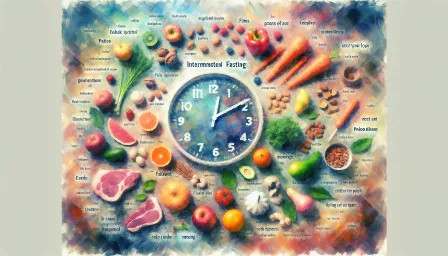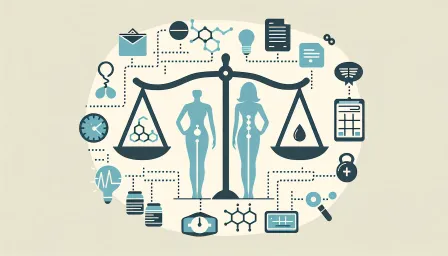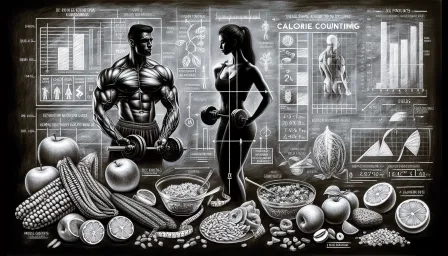Unlock Peak Performance: Mastering Nutrient Timing and Hydration

Unlock your peak performance by mastering the art of nutrient timing and proper hydration. Learn scientifically-backed strategies and practical tips in this comprehensive guide.
In the quest for peak performance, athletes and fitness enthusiasts often seek to optimize every aspect of their training and nutrition. One crucial element that can significantly impact performance is nutrient timing and hydration. This comprehensive guide aims to shed light on how mastering these factors can push you towards your goals faster and more efficiently.
The Importance of Nutrient Timing
Nutrient timing refers to the strategic consumption of nutrients at specific times to maximize their effectiveness and benefit your exercise performance and recovery. Unlike general nutrition, nutrient timing focuses on when you eat rather than just what you eat.
Pre-Workout Nutrition
Eating the right nutrients before a workout can help you perform better and reduce muscle damage. Ideally, you should consume a balanced meal containing carbohydrates, protein, and moderate fat about 2-3 hours before exercising. Carbohydrates provide you with the energy needed for high-intensity workouts, while protein supports muscle repair and growth.
If you’re short on time, a small snack that is high in carbohydrates and moderate in protein about 30-60 minutes before your workout can still be beneficial. Examples include a banana with peanut butter or a protein smoothie.
During-Workout Nutrition
For most recreational athletes, maintaining hydration during the workout is more critical than consuming food. However, for those engaging in prolonged or highly intense exercise lasting more than an hour, consuming easily digestible carbohydrates, such as energy gels or drinks, can help maintain energy levels.
Post-Workout Nutrition
Post-workout nutrition is vital for recovery. Consuming a meal rich in protein and carbohydrates within 30-60 minutes after your workout helps replenish glycogen stores and repair muscle tissues. Aim for a 3:1 ratio of carbohydrates to protein for optimal recovery. Foods like a chicken sandwich, a protein shake with fruit, or Greek yogurt with honey and granola are excellent choices.
The Role of Hydration in Performance
Hydration is often an overlooked component of athletic performance. Staying adequately hydrated not only sustains your performance but also prevents dehydration, which can lead to fatigue, muscle cramps, and other serious health issues.
Pre-Workout Hydration
Proper hydration begins well before you start exercising. Aim to drink about 500-600 ml of water or a sports drink two hours before your workout. This allows enough time for your body to process the fluids and ensures you start your workout well-hydrated.
Hydration During Workout
During exercise, aim to drink small amounts of water every 15-20 minutes. If you’re engaging in prolonged, high-intensity workouts, consider adding electrolytes to your water to replace the sodium, potassium, and other minerals lost through sweat.
Post-Workout Hydration
Rehydrating after exercise is crucial for recovery. Drink at least 500 ml of water or an electrolyte drink for every pound of weight lost during the workout. Incorporating drinks like coconut water or sports drinks can help restore lost electrolytes.
Combining Nutrient Timing and Hydration for Optimal Results
Maximizing your performance and recovery involves more than just focusing on nutrient timing or hydration alone. Integrating both strategies ensures that your body has the energy and hydration it needs throughout all stages of your workout.
Quick Tips for Balancing Nutrition and Hydration
- Plan ahead: Prepare your pre- and post-workout meals and snacks in advance to ensure you’re getting the right nutrients at the right times.
- Monitor hydration: Keep track of your water intake daily. Use tools or apps if necessary to make sure you're meeting your hydration goals.
- Listen to your body: Pay attention to your body’s signals. Feeling unusually fatigued or lightheaded can be signs of improper nutrient timing or hydration.
Addressing Common Challenges
Many athletes struggle to find the right balance of nutrient timing and hydration. Here are some common challenges and solutions.
Busy Schedules
With hectic lifestyles, it can be challenging to find the time for proper meal planning and hydration. To overcome this, consider meal prepping and setting reminders to drink water throughout the day.
Lack of Knowledge
Many people aren’t aware of the importance of nutrient timing and proper hydration. Educating yourself through reliable sources and consulting with a nutritionist or dietitian can provide valuable insights and custom strategies.
Conclusion
Achieving peak performance involves more than just hard work and dedication; it requires a strategic approach to both nutrition and hydration. Mastering nutrient timing and maintaining proper hydration can significantly affect your workout efficiency, performance, and recovery. Implement the tips and strategies outlined in this guide to unlock your full athletic potential and ensure sustainable results.



























